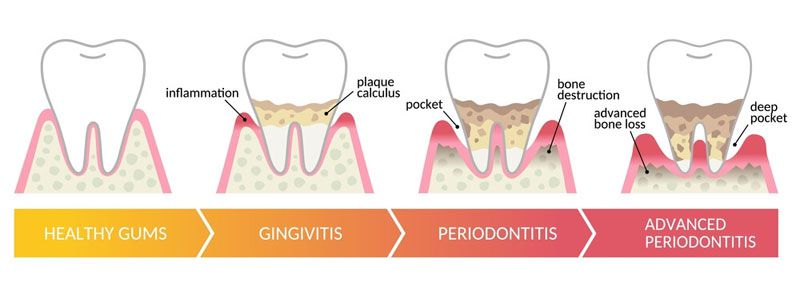Introduction
Ever wondered if something you do every day might secretly harm your smile? Imagine a common habit that millions follow, hiding a danger that goes beyond just harming your lungs. We’re talking about smoking, a widespread practice with hidden risks for your oral health.
In a world where many people smoke, it’s crucial to understand how this habit affects something often ignored: your teeth and gums. Beyond the obvious dangers, we need to ask: How does smoking impact the health and beauty of your smile? This isn’t just for health fanatics; it’s essential for everyone.
This introduction wants to shine a light on how common smoking is and make you curious about how it might be affecting your teeth and gums.
Let’s explore why it’s important to think about the impact of smoking on oral health, uncover the risks it poses, and see what consequences might be hiding behind your daily routine. Join us on this journey as we uncover the connection between smoking and your oral health. Your smile deserves more than just a passing thought.

The Link Between Smoking and Oral Health
Your oral health is intricately connected to many aspects of your daily life, and one significant factor that often goes overlooked is smoking. Let’s delve into the relationship between smoking and the well-being of your oral cavity, understanding why this common habit can pose serious risks.
The Oral Cavity and Vulnerability to Smoking:
The oral cavity, comprising your mouth, gums, teeth, and other structures, is more vulnerable to the effects of smoking than you might realize. Smoking introduces a multitude of harmful substances into your mouth, creating an environment where your oral health can be compromised. Because of their sensitivity, the tissues in your mouth are particularly vulnerable to harm from the chemicals in tobacco smoke.
When you smoke, the heat and chemicals in the tobacco interact with the delicate tissues of your mouth. The smoke’s abrasive nature irritates the gums and soft tissues, leading to inflammation. This inflammation is the beginning of a cascade of potential oral health issues, making it crucial to recognize the risks associated with smoking.
Chemical Composition of Tobacco and Adverse Effects on Oral Tissues:
Understanding the chemical makeup of tobacco is key to comprehending its adverse effects on your oral tissues. Tobacco contains a cocktail of harmful substances, including nicotine, tar, carbon monoxide, and numerous carcinogens.
- Nicotine: This highly addictive compound constricts blood vessels, reducing blood flow to the gums and depriving them of essential nutrients and oxygen. This restriction impedes the natural healing processes of the oral tissues, making the gums more susceptible to infections and diseases.
- Tar: A sticky residue produced by burning tobacco, tar adheres to teeth and dental work, contributing to the unsightly staining associated with smoking. Additionally, tar buildup can penetrate the microscopic crevices in the teeth, making them more susceptible to cavities and decay.
- Carbon monoxide: This poisonous gas interferes with the oxygen-carrying capacity of blood. Reduced oxygen levels in the bloodstream can impair the healing of oral tissues and exacerbate existing oral health problems.
- Carcinogens: Tobacco smoke is laden with cancer-causing agents that can lead to the development of oral cancers. Prolonged exposure increases the risk of malignancies in the lips, mouth, tongue, and throat.
The Link Between Frequently Occurring Oral Health Problems and Smoking
Smoking has considerably more harmful consequences for your oral cavity than just foul breath and discolored teeth. Let’s explore the complex relationship between smoking and these prevalent oral health issues, elucidating why smoking poses such a serious risk to the health of your teeth and gums.
| Common Oral Health Issues | Impact of Smoking |
| Gum Disease (Periodontal Disease) | Weakened immune response to bacterial infection. Increased susceptibility to inflammation and infection. Accelerated progression of gum disease, leading to severe damage. Elevated risk of tooth loss compared to non-smokers. |
| Tooth Decay | Chemicals in tobacco weaken enamel, increasing susceptibility to cavities. reduces saliva production, which plays a crucial role in neutralizing acids and preventing tooth decay. Requires heightened vigilance in oral hygiene practices. |
| Oral cancer | Tobacco smoke contains carcinogens, elevating the risk of cancer. Affected areas include lips, tongue, mouth, and throat. The risk increases with the duration and intensity of smoking. Regular dental check-ups are crucial for early detection. |
| Compromised Healing and Immune Response | It hampers the body’s ability to heal and fight infections. Delays healing after post-dental procedures and surgeries. Increases the risk of complications from dental treatments. Weakened immune responses heighten vulnerability to oral infections. |
The Mechanisms of Damage
Nicotine and Blood Flow
Let’s think of your blood vessels as tiny highways delivering important supplies to different parts of your body, including your gums. Nicotine, the troublemaker in cigarettes, acts like a traffic jam on these highways. When you smoke, it makes the blood vessels narrow, slowing down the traffic.
Imagine if a city suddenly had traffic jams everywhere. Deliveries would be delayed, and important goods wouldn’t reach their destinations on time. Similarly, when nicotine restricts blood flow to your gums, essential nutrients and oxygen can’t get there as quickly. This delay weakens the gums, making them more susceptible to infections and diseases like gum disease.
Reduced Immune Response
Now, let’s talk about your body’s defense team—your immune system. It’s like an army that protects you from harmful invaders. Smoking, however, weakens this army, especially in your mouth.
Think of white blood cells as the soldiers of your immune system. Smoking disrupts their abilities, making them less effective at fighting off bacteria in your mouth. It’s like having a superhero with weakened powers—they can’t do their job properly. This weakened defense system makes it easier for harmful bacteria to cause problems, leading to issues like persistent gum disease.
In simple terms, smoking messes with the normal flow of nutrients to your gums and weakens your body’s defense system in your mouth. This double trouble creates an environment where oral health problems can easily sneak in and cause damage. Understanding these simple examples helps us see why it’s important to address smoking for the sake of our teeth and gums.
Impact on Treatment and Recovery: Navigating Challenges and Embracing Change
When it comes to oral health, smokers often face unique challenges that can impact the effectiveness of treatment and recovery. Understanding these challenges and recognizing the transformative power of smoking cessation is crucial for achieving optimal oral health outcomes.
Challenges in Treating Oral Health Issues in Smokers:
- Compromised Healing: Smoking hampers the body’s natural healing processes. This is particularly challenging when dealing with oral health issues that require prompt and efficient healing, such as after dental procedures or surgeries. The presence of harmful chemicals in tobacco smoke delays the recovery of tissues, making the treatment process more complex.
- Increased Infection Risk: Smokers are more susceptible to infections due to a weakened immune response. Treating oral infections becomes challenging as the body’s ability to fight off bacteria is compromised. This heightened risk of infection can lead to prolonged treatment times and may necessitate more aggressive interventions.
- Gum Disease Progression: Smokers often experience a more rapid and severe progression of gum disease. This complicates the treatment process, requiring comprehensive strategies to address inflammation, infection, and damage to the supporting structures of the teeth. Successfully managing gum disease in smokers requires a multi-faceted approach to break the cycle of progression.
Importance of Smoking Cessation in Improving Oral Health Outcomes:
- Enhanced Healing: Quitting smoking is a game-changer for healing. Once the harmful effects of tobacco smoke are removed, the body can focus on efficient healing. This is particularly crucial for oral health treatments, where timely recovery plays a vital role in successful outcomes.
- Reduced Infection Risk: Smoking cessation significantly improves the body’s immune response. With a stronger defense system, the risk of infection decreases, making the treatment of oral health issues more effective. The body becomes better equipped to fight off bacteria and prevent the recurrence of infections.
- Gum Disease Management: Smoking cessation is pivotal in managing and halting the progression of gum disease. Without continued exposure to tobacco smoke, the gums have a better chance of recovering. Combined with appropriate dental care, quitting smoking becomes a cornerstone in achieving positive outcomes in gum disease treatment.
- Improved Overall Oral Health: Smoking cessation contributes to an overall improvement in oral health. Reduced staining, fresher breath, and a lower risk of oral cancers are additional benefits. These positive changes not only enhance the success of ongoing treatments but also set the stage for long-term oral health maintenance.
Conclusion
In concluding our exploration, the impact of smoking on oral health stands as an undeniable reality. From gum disease to oral cancer, the toll is substantial. Urgency underscores the need for immediate attention, emphasizing that each puff contributes to potentially irreversible damage. As we wrap up, the call to action is clear: prioritize your oral health. Quit smoking today and embark on a journey towards a healthier, brighter smile. Your oral well-being deserves the investment, and the first step begins with breaking free from the clutches of tobacco.
FAQ’s
How does smoking contribute to tooth staining, and can it be reversed?
Smoking introduces tar and nicotine to your teeth, causing stubborn stains. These can be challenging to remove with regular brushing alone. Professional teeth whitening procedures by dental experts can help significantly reduce these stains and restore the natural color of your teeth.
Is there a direct link between smoking and oral cancer?
Yes, smoking is a major risk factor for oral cancer. The chemicals in tobacco can damage cells in the oral cavity, increasing the likelihood of cancer development. Regular dental check-ups are crucial for early detection and intervention, improving the chances of successful treatment.

Can quitting smoking reverse the damage to gum health?
Yes, quitting smoking can lead to remarkable improvements in gum health. Smoking compromises the immune system, making it harder for the body to fight off infections in the gums. Quitting smoking allows the immune system to recover, aiding in the healing of gum tissues.
How does smoking impact the success of dental procedures?
Smoking can pose challenges during dental procedures. It impairs healing, increases the risk of infections, and may complicate treatment outcomes. Dental professionals may recommend quitting smoking before certain procedures to enhance the chances of successful outcomes.
Are smokeless tobacco products a safer alternative for oral health?
No, smokeless tobacco products still pose significant risks to oral health. Chewing tobacco or using snuff exposes the gums and teeth to harmful chemicals, increasing the risk of gum disease, tooth decay, and oral cancer. Quitting all forms of tobacco is essential for optimal oral health.

Namaste UI collaborates closely with clients to develop tailored guest posting strategies that align with their unique goals and target audiences. Their commitment to delivering high-quality, niche-specific content ensures that each guest post not only meets but exceeds the expectations of both clients and the hosting platforms. Connect with us on social media for the latest updates on guest posting trends, outreach strategies, and digital marketing tips. For any types of guest posting services, contact us on info[at]namasteui.com.

